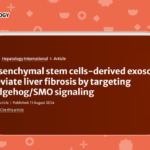
Editorial Note: Surgical site infections (SSIs) are among the most common postoperative complications, not only prolonging hospital stays and increasing medical costs but also severely impacting patient survival and quality of life. Research indicates that Gram-positive bacteria are the primary isolates in various surgeries, particularly methicillin-resistant Staphylococcus aureus (MRSA), which presents significant treatment challenges and poses a serious public health threat. To address this issue, the European Society of Clinical Microbiology and Infectious Diseases (ESCMID) and the European Committee on Infection Control (EUCIC) jointly released the Clinical Guidelines on Preoperative Decolonization and Targeted Prevention for Multi-Drug Resistant (MDR) Gram-Positive Bacteria. The purpose of these guidelines is to provide scientific evidence and practical guidance for healthcare institutions on preventing and controlling SSIs. This article compiles and summarizes the recommendations within these guidelines to offer a reference for clinicians and infection control professionals.Methicillin-Resistant Staphylococcus aureus (MRSA)
Question 1.1: Should patients be screened for MRSA before surgery?
Recommendation:
Screening for methicillin-sensitive Staphylococcus aureus (MSSA) and MRSA prior to elective cardiac and orthopedic surgeries may be good clinical practice, depending on local epidemiology (ungraded Good Practice Statement).
Notes:
• Interventions such as decolonization, targeted prevention, and integrated strategies are aimed at patients with known colonization status. Therefore, the guidelines’ recommendations apply only to centers where Staphylococcus aureus screening is feasible.
• Although evidence shows that decolonization can reduce Staphylococcus aureus surgical site infections (SA-SSI) and is beneficial in high-risk surgeries such as cardiothoracic and orthopedic procedures, studies have not separately assessed the effectiveness of screening in reducing SA-SSI but have examined the overall procedure of screening followed by decolonization.
• Whether targeted screening should be implemented based on clinical risk assessment (e.g., past infections, non-nasal colonization) or whether universal screening should be conducted for patients undergoing high-risk surgeries should be determined by local epidemiology, available resources, and cost considerations.
• Rapid screening for MRSA could be a useful tool in preoperative assessments to obtain timely results.
Infection Prevention and Antimicrobial Management Considerations:
• Screening for Staphylococcus aureus may support infection control and provide data for antimicrobial policies (e.g., MRSA infection rates may influence recommendations for empiric antimicrobial use).
• Prior to implementing preoperative screening, a cost and feasibility analysis should be conducted at the local level.
• Standard Operating Procedures (SOPs) should be developed in line with national guidelines and based on local epidemiology, the risk of Staphylococcus aureus acquisition, microbiological capabilities, and available financial resources.
Question 1.2: Should MRSA carriers undergo decolonization before surgery?
Recommendation:
For MSSA and MRSA carriers, it is strongly recommended to use mupirocin, with or without chlorhexidine, for decolonization before cardiac and orthopedic surgeries (strong recommendation, moderate quality evidence).
For carriers undergoing other types of surgery, mupirocin with or without chlorhexidine is conditionally recommended (conditional recommendation, low quality evidence).
Notes:
• The strongest evidence supports the use of 2% mupirocin nasal ointment, applied twice daily for five consecutive days, with or without chlorhexidine gluconate soap (40 mg/mL).
• Although evidence is limited, immunocompromised patients undergoing surgery or procedures involving implantable materials may benefit more from decolonization due to a higher risk of SA-SSI.
• Decolonization should be completed as close to the surgery date as possible, ideally within 1-2 weeks before the procedure.
• Patients who do not complete the 5-day mupirocin nasal decolonization regimen before surgery should finish it postoperatively.
• For elective surgeries, it may be considered to delay the procedure to complete decolonization if feasible and without additional risk to the patient.
• In the absence of screening, universal decolonization before surgery should be approached with caution to avoid promoting mupirocin resistance, unless supported by clinical trials.
Infection Prevention and Antimicrobial Management Considerations:
• Before implementing decolonization procedures, local colonization rates of Staphylococcus aureus and infection rates among surgical patients should be carefully assessed.
• Local epidemiology, financial resources, and patients’ risk factors for acquiring Staphylococcus aureus should influence decisions on decolonization policies.
• External factors contributing to SSIs, such as non-adherence to SOPs, hand hygiene, and aseptic surgical techniques, remain critical.
• Monitoring the resistance of decolonization isolates and infection-causing strains to mupirocin should be part of the policy.
Question 1.3: Should MRSA carriers receive targeted perioperative antibiotic prophylaxis (PAP)?
Recommendation:
Targeted prophylaxis is conditionally recommended for MRSA carriers undergoing cardiac, orthopedic, and neurosurgical procedures (conditional recommendation, low quality evidence).
At the time of writing, there is insufficient evidence to support or refute targeted perioperative antibiotic prophylaxis (PAP) for MRSA carriers, so no definitive recommendation can be made.
Notes:
• Patients who have successfully undergone decolonization may not require targeted MRSA PAP, but eradication should be performed close to surgery (e.g., 1-2 weeks before) as recolonization is common.
• Vancomycin combined with a beta-lactam is recommended as the preferred targeted PAP for MRSA carriers, with published data most strongly supporting vancomycin dosed at 15 mg/kg, administered two hours before surgery. Each institution should develop its own guidance for optimizing vancomycin use.
• High-dose teicoplanin (10-12 mg/kg) may be considered as an alternative. It has practical advantages over vancomycin (e.g., large dose or 30-minute infusion), though evidence for its efficacy is limited.
• In high-risk emergency surgeries and patients at increased risk of MRSA colonization or infection, targeted PAP with vancomycin may be considered even if the colonization status is unknown. For example, this could apply to patients with recent MRSA infections, those on hemodialysis, or residents of nursing homes. Current evidence is limited and based on observational studies.
Infection Prevention and Antimicrobial Management Considerations:
• Prior to implementing targeted PAP, local epidemiology should be assessed, including MRSA colonization and infection rates among surgical patients.
• PAP policies should be modified based on local epidemiology, financial resources, and patient risk factors for MRSA infection.
Question 1.4: Should combined interventions (decolonization and targeted prophylaxis) be used preoperatively in MRSA-colonized patients?
Recommendation:
Combined interventions (decolonization and targeted prophylaxis) are conditionally recommended before cardiac and orthopedic surgeries for MRSA carriers (conditional recommendation, very low-quality evidence).
At the time of writing, there is insufficient evidence to make specific recommendations for other types of surgeries.
Notes:
• Institutions should update or reinforce integrated measures in the hospital based on local needs, types of surgery, and monitoring data for SA-SSIs.
Vancomycin-Resistant Enterococci (VRE)
Question 2.1: Should patients be screened for VRE before surgery?
Recommendation:
At the time of writing, there is insufficient evidence to support VRE screening before surgery, so no specific recommendation can be made.
Question 2.2: Should targeted PAP be used to reduce SSIs in VRE carriers compared to standard prophylaxis?
Recommendation:
There is insufficient evidence to support or oppose targeted perioperative prophylaxis for VRE carriers at this time, so no specific recommendation can be made.
Notes:
• In liver transplant recipients, VRE screening may be considered for epidemiological purposes or to implement infection control measures, but further studies are needed to evaluate the benefits of VRE-SSI screening.
Infection Prevention and Antimicrobial Management Considerations:
• Any study on targeted VRE PAP should assess the risk of antimicrobial resistance emerging from the prophylactic use of antibiotics.


